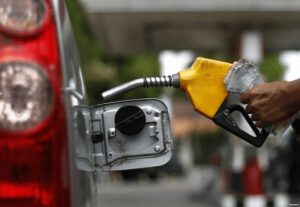
Fuel prices have seen an upward adjustment as some oil marketing companies have started increasing the prices of petroleum products at the pumps.
This follows a drop in net changes indicating that the price of petrol has fallen by 4.17%, diesel by 0.87%, and LPG by 3.44% in the world market.
Published data for the second pricing window of May 2024 indicate that petrol closed at $851.73 per metric tonne, diesel closed at $749.70 per metric tonne, and LPG closed at $444.80 per metric tonne.
Shell is selling a litre of petrol and diesel at GH₵14.84 from the previous GH₵14.57.
A market leader, GOIL, is selling a litre of petrol for GH₵14.60, from its old price of GH₵14.55.
Diesel is going for GH₵14.75, up from the previous price of GH₵14.70.
GOIL’s price is, however, lower compared to Shell.
GOIL has attributed the adjustment of the GH₵0.05 increase to the Unified Petroleum Price Fund (UPPF) margin.
The National Petroleum Authority (NPA) directed industry players to increase the margin from June 1, 2024.
Some oil marketing companies have explained that prices at the pumps would have remained unchanged if the UPPF margin had not gone up.
More oil marketing firms are expected to increase their prices at the pumps.
Analysts have questioned the decision and rationale behind the NPA’s directive to increase the UPPF margin.
This is because crude oil prices have been dropping on the World Market, which some observers say should have been reflected in the prices at the pumps.
The Institute for Energy Security (IES) predicted fuel prices to increase again in the first half of June, which began on June 1, 2024.
According to IES, the increment arose from developments in the foreign fuel and domestic forex markets as the cedi’s performance worsened.
The cedi continued to give grounds to the US dollar with the year-to-date depreciation at 17.88%. It is presently going for GH¢14.80 to a dollar on the retail forex market.
The net changes indicate that the price of petrol has fallen by 4.17%, diesel by 0.87%, and LPG by 3.44%.
In addition, some observers and civil society organisations have argued that if the cedi had been stable against the dollar, consumers should have enjoyed a sharp drop in prices.
As prices increase, it is unclear how the adjustment will impact transport fares.
Story By Will Agyapong






